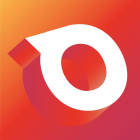Pre-Conference Workshop M3
Beyond Digital Storytelling: DIY Creation of Interactive Exhibits as Educational Tool
Date Wednesday, 2 Dec Time – Room: Tiergarten I Price: free of charge Status: fully booked
Workshop leaders

Dick van Dijk
Creative Director, Waag Society, The Netherlands
Dick van Dijk is Creative Director at Waag Society. Part of his role at Waag Society is creating interactive concepts, strategizing design research and user involvement, and monitoring the development of the actual ‘thing’. He is mostly interested in the crossover between virtual and physical interactions, in creating a narrative space, a place for imagination.
As concept developer he has worked on projects as diverse as the MuseumApp, the Storyville storytelling apps, Scottie and Operation Sigismund. He has spoken and lectured on (location based) storytelling, interaction design, playful learning and co-creation. Dick is co-author of several publications like 'Users as Designers' and 'Waarde van Verbondenheid' (Dutch), on social connectedness. He is co-author of the book 'Connect, Design for an Emphatic Society' of age-driven design.
Dick has a background in Business Economics and History of Art and is currently extending his creative skills in the context of an Arts Academy. Dick is part of the Fontys Media Lectorate/Fontys FutureMediaLab.
Links
Speaker

Thomas Kubitza
Universität Stuttgart, Germany
Thomas Kubitza is a researcher and PhD candidate in the Human Computer Interaction Group lead by Albrecht Schmidt at the University of Stuttgart in Germany. Thomas holds a Master in Computer Science from the University of Duisburg-Essen. His professional interests lie in the area of Human Computer Interaction and Ubiquitous Computing. Specifically he is interested in Smart Environments, their creation and programming. Many of Thomas’ projects involve the creation of advanced hardware and software prototypes. Within the meSch FP7 EU project he leads the development of a software and hardware platform that allows designers and curators to easily create interactive installations. In 2014 Thomas has worked for Microsoft Research Cambridge where he was part of the Sensors and Devices Group which is currently involved in the creation of the BBC micro:bit.
Content
This Event provides a new means for storytelling/story creation by incorporating material components and physical interaction. You will have the chance to experience a new approach in relation to maker-education (where the end product and the creation process become an integral part of the learning experience). Join for know-how about DIY tools and grow your network of like-minded educators.
Storytelling is an important communication skill, we tell stories all the time. Interactive technology can foster new ways of storytelling and of multimedia story CREATION. The EU funded meSch project has delivered an Authoring Tool for cultural heritage professionals, which helps them in creating interactive exhibits in an easy-non-technical way. Within meSch, several prototypes of interactive exhibits have been developed and optimised for uptake by the cultural heritage domain.
But the authoring tool has great educational value outside the cultural heritage domain as well. By empowering pupils with the Authoring Tool, they can create their own interactive, smart and tangible exhibitions, of ‘things’ that are important to them. Using the tool will allow them to explore strategies to create meaningful participatory story experiences, combining elements from ludology, narratology and game design, and explore the affordances of different novel (technological) tools, such as (proximity) sensors, near field communication, and wearables.
The Authoring Tool now supports cultural heritage professionals (CHPs) in selecting the content and organising it into narrative templates or “cooking recipes” and assists the design process. The same approach would be valuable as a learning tool.
Using the Authoring Tool surpasses the common definition of “Digital storytelling” as it bridges the physical and digital (user) experiences. The meSch project takes the stance that materiality complements and completes cognition and therefore a personally meaningful and sensory rich experience with stories, objects and places can greatly improve both the user’s experience of a topic and their appreciation of the author’s (cultural) values.
Agenda
1) introduction - 15 min
2) demo - 30 min
3) plenary discussion - 15 min
4) mapping current landscape - 15 min
coffee break – 15 min
5) paper prototyping - 45 min
6) presentation of outcomes - 30 min
7) conclusion - 15 min
Target audience
Anyone with an interest in bringing smart objects for story telling in an educational setting
Prerequisite knowledge
none
Outcomes
- Knowledge of the meSch authoring tool
- Knowledge of co-creation and paper-prototyping for interactive storytelling
- Ideas for interactive and physical storytelling
- Ideas on how to set up knowledge creation by experience, instead of passive knowledge transfer
